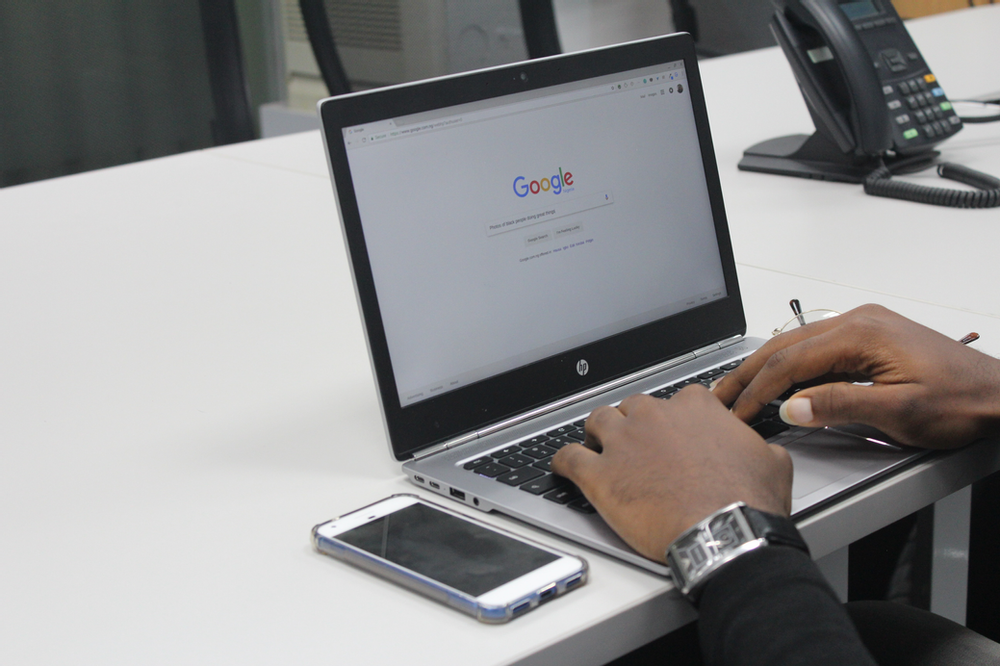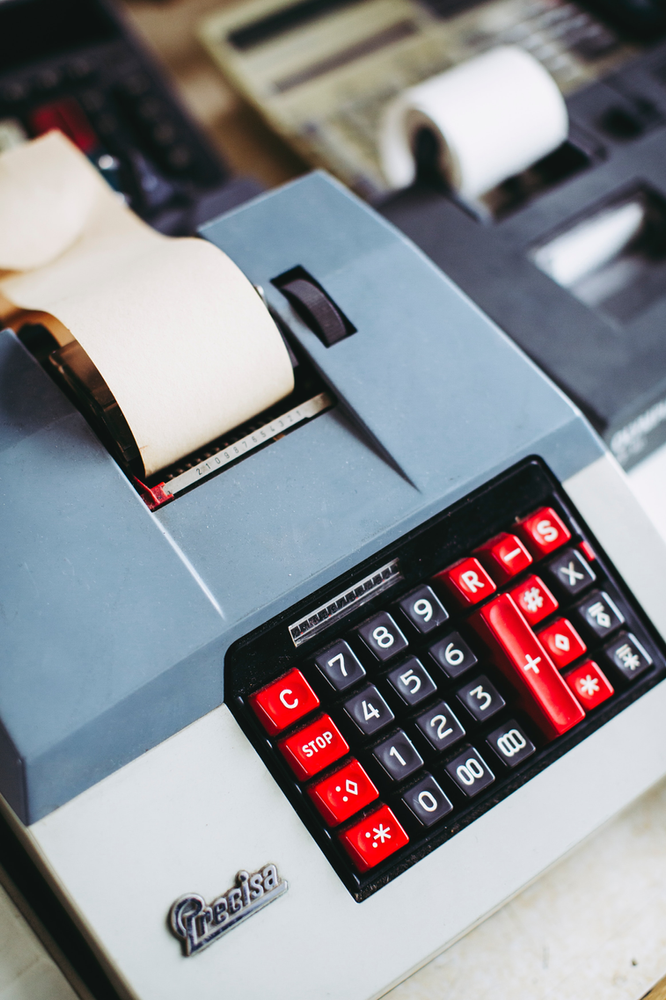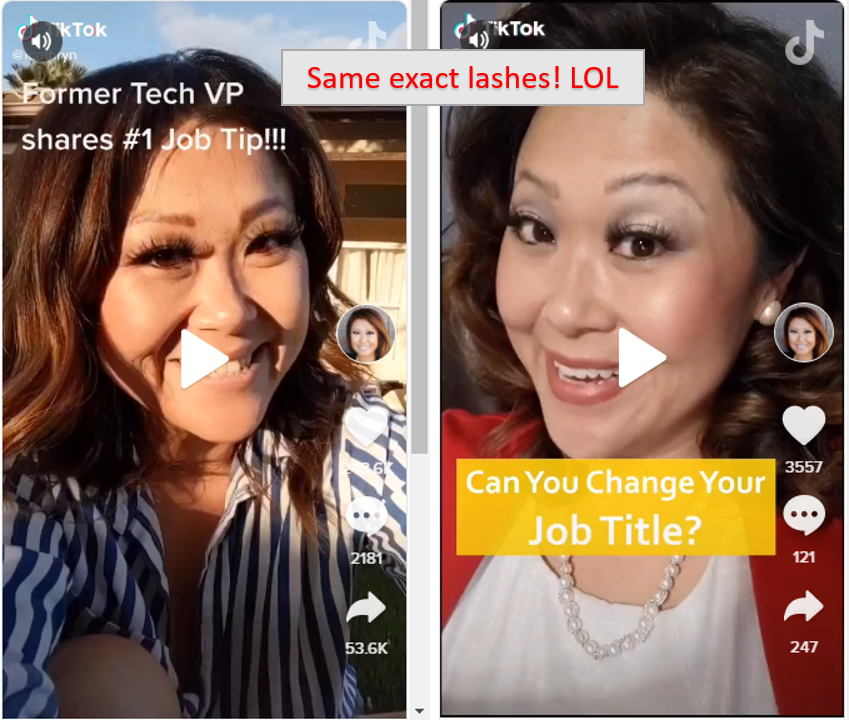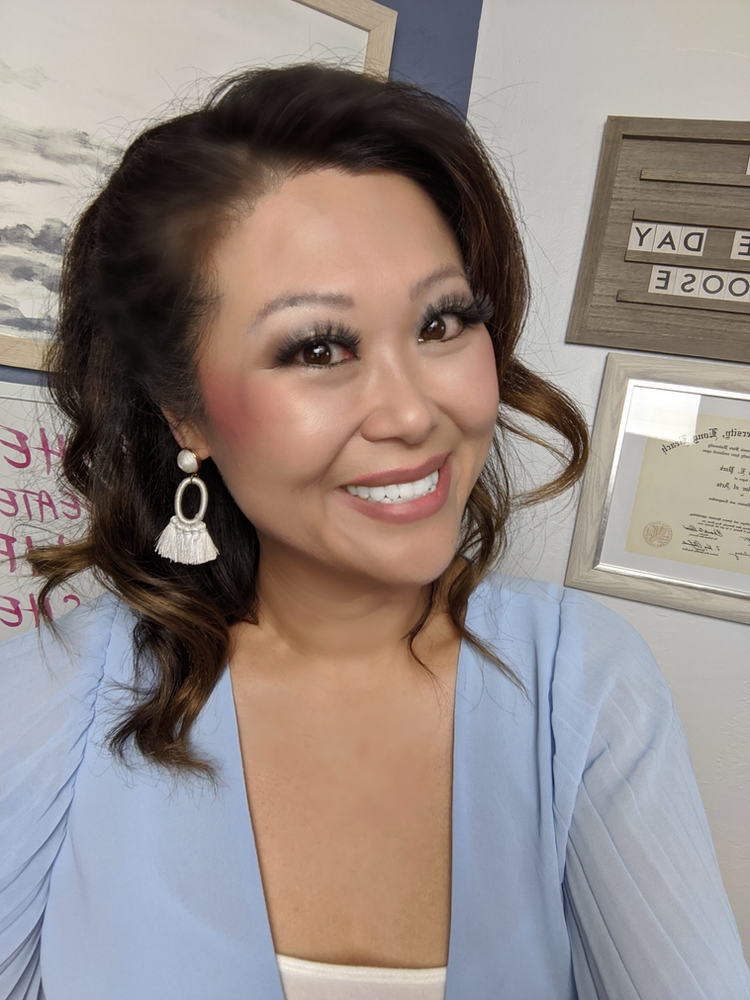Part 2: Preparing for the Interview
Who is involved in the Job Interview? What should I wear for the interview? When should I prepare for the interview? Where do I take the interview, if it’s a webcam or phone call? How do I do prepare and study? How much time should I take to prepare?
- Research & Study: People, Company, and the Work itself
- Preparation: Timeline, Resources, Materials (Printed Notes), Mock Interview
- Grooming: Clothing, Hair, Shoes, etc.
- Logistics: Getting There, Setting Up, etc.

“Hello, yes, speaking. Oh, that’s fantastic news! Thank you so much for the opportunity to interview with your company! Yes, I’m really looking forward to meeting… errrr… exactly who was it you said?
How do you spell that last name? Will anyone else be there? And to properly prepare, would you mind telling me their titles and how much weight their opinions hold in the decision-making process?
I want to bring my A-game and make sure that if they ask a lot of technical questions that I have those nailed down. Thank you so much!!!”
I can’t recall if anyone’s ever asked me if anyone else would be at the interview or what their title would be… heck, I certainly don’t think anyone’s asked me about how much decision-making power each person held! You’re not being rude or intrusive by asking these questions.
You are being proactive and smart. It’s like when you were in school and you asked the teacher, “What’s on the test?” They always told you, or you got it from the syllabus. Maybe it was 50% on this chapter, 20% on that, 30% short essay. You get my drift.

Point is, you prepared properly because you knew what you were getting into. In software engineering, we call this SCOPE.
In government contracts, actually any contract — be it with a repairman or a multi-million dollar jet — you have to know the scope of the work to be done, or else we never knew how to bid on it. Before a car mechanic gives you an estimate, he’d have to know the scope of the work. If you brought your car in for just an oil change, and they charged you for the oil change, a new air filter, broken tail light, etc. You’d be a bit upset, right? Because you were both aware of the scope (just an oil change) and yet you were charged for extra things.
Same thing with knowing who’ll be at the job interview. If you don’t know the scope of the interview, you might be up poop creek. You have to know if they will test your hard skills (e.g., being asked to code something in front of everyone) or soft skills (e.g., how do you handle difficult situations?)
Now that you got the call back for the interview and you know who’s involved and all the crazy little deets on there. Put on your hard hats, ladies and gentlemen, because we’re about to do some MASSIVE digging and hard work!

1) RESEARCH & STUDY
Research and study the Interviewer(s), Company, and the Job that you’ll be doing. When I say study, I mean study.
a) THE INTERVIEWER(S)
-Who exactly will be at the interview? Get the first and last names (spelling too!)
-What is their title? Usual suspects include anyone who’s a Stakeholder e.g., Hiring Manager, HR Rep, and a Lead Coworker. A stakeholder is someone who is affected by you getting hired.
-How much decision-making power will they have? 50%? 20%?
If you didn’t get all this info when they called you, it’s ok. 🙂 You can at least guess who’ll be there and find them online.
- Social stalk the interviewer(s) on LinkedIn, FB, Insta, Twitter, Pinterest, SnapChat, TikTok, YouTube, etc.
You’re probably like why Insta, Twitter, Pinterest, Snapchat, TikTok, or YouTube??? What are you thinking, Cathryn??? Well, it will give you insight into their sense of humor, their personality, their interests, etc.

Also, if you find absolutely no internet footprint on someone — that is very telling. It tells me that they might be VERY private and may not trust easily. So act professional around them, just in case. 🙂
- Print out their bios and highlight stuff! Not kidding. Knowing who they are and what they are about helps them identify with you. If you have common ground, it might be a deciding factor between you and someone else who is identical in qualifications and skills as you.
Pro Tip: Another reason why it’s great to have common ground with someone is that when it comes to future performance reviews and (queue sad music) layoffs, if you’re friendly with your manager, the odds are in your favor.
Try to have just one thing in common, if at all. If not, don’t sweat it… not a deal-breaker. 🙂
NOTE: Never force a topic you have in common with the interviewer — it should come up in natural conversation!
Things to look for that you might have in common with the Interviewer:

- College / Major – This is a great topic to bring up if you actually went to the same school or got a degree in the same major. Be honest and let them that you looked them up.
You could say: Can I be honest? I kinda looked u up, and I’m glad I did! We went to the same school! or We have the same degree! Were those dorms always that small? Or it’s funny how we both got into this field even though we have a bachelor’s in…
- Kids – Do they have kids? Do you have kids? Boom. Make it so. Conversations about parenting are the best, especially the funny things your kids say or do!
- Hometown – Even if you’re not from the same hometown, maybe you have a cousin from there?
- Sports – Not everyone is into football, but maybe they love board games? 🙂
- Music / Movies – What if you found out that you both love Accordion music? Or maybe Foreign Films? Whoa… match made in heaven.
- Hobbies – Do they do a lot of DIY? Are they into Chip and JoJo?
Other Things to look for:

- Gender – Know the gender of your interviewer(s). This might sound funny, but it actually happened to me in my early 20s. I walked into an interview thinking that it would be a man, and it turned out to be a woman (not that it mattered). But it did surprise me because I just didn’t expect it and it threw me off a little bit because I was prepared for a man. I had mentally prepared myself to be “mansplained” and I had made sure that I dressed in a way that would garner more respect. It was a whole thing. No offense, men. Being in engineering, it’s just happened to me a lot.
- Religion – Know the religious affiliation of the interview panel, so you can avoid saying something offensive, not that you would, but you never know.
- Politics – Again, same as above. Don’t make a Trump or Obama reference — it’s not cool to talk about politics during an interview, even if they do. Just avoid it.
Don’t get baited or roped into a political conversation. AVOID. AVOID. AVOID. Unless you are interviewing for a political role.
b) The COMPANY
Do you know how many people have gone to interviews not knowing a thing about the company they’re interviewing for???
From my experience, it’s about 50/50. Half know and half don’t. I’m really surprised when a person knows nothing about the company they are considering spending most of their waking life with.
But now that you’re reading this, you can be educated and prepared! 🙂 Learn about the company from their website and stocks.

Company Website
Go to the company’s website and find the following:
- Vision, Mission, Motto, Values
- Info on Product(s) and Service(s)
- Company History
- Leadership Bio
Print them out and maybe try to bring some of these things up organically into the conversation.
Company Stock Performance
- If they are public, go to Yahoo Stocks (I like their interface the best) and print their All Time, 1 Year, and Last 3 Months Performance.
- Good info for you and something to talk about (again, bring it up naturally).
c) The JOB
Research questions you’ll be asked about the job and yourself.
BASIC INTERVIEW QUESTIONS

- Do a google search for Top 10 basic interview questions, print, and highlight the ones you like.
- Know how to answer basic interview questions like, “Tell me about yourself”, which is my favorite, because you can either answer it with personal comments or just professional. When I answer that question, I answer a 60:40 ratio of Business to Personal. So they know I’m a Pro but not too stuffy because no one wants to work with a robot. Plus, if you’re up against another equally qualified candidate and it’s down to personality, you want that extra edge.
SPECIFIC INTERVIEW QUESTIONS
- Again, do a google search for Top 10 interview questions for the job you’re interviewing for, print, and highlight the ones you like.
- Google best questions to ask interviewers about the role.
- TRY TO ASK THIS EARLY IN THE INTERVIEW: If it’s at all possible, see if you can ask this question early in the interviewer,

“Would you mind telling me about one of your top performers — what 3-4 things makes them so outstanding for you? Is it their knowledge, initiative, problem solving, conflict management, or time management?”
This will shape your entire interview, depending on what they say. Whatever they say, now you know how to shape your answers to all their questions!!!
- AT THE END OF THE INTERVIEW: when they ask, do you have any questions for us? ALWAYS ASK THIS:
“When do you think I will be notified of the hiring decision?”
JOB POSTING – QUALS n SKILLS

- Print the Job Posting and grab 2 different colored highlighters:
- With 1 color, highlight the Quals and Skills you have experience in and you are OK or GREAT at. Remember that the first few quals and skills are usually the most important – make sure you find quantified examples of those on your resume.
- Get your resume and with the same color, highlight the experience that matches the qual and skill.
- Now with the other highlighter, highlight the Quals and Skills that you don’t have and if possible, look for quals and skills on your resume that might be good SUBSTITUTES.
- Or if it’s not on your resume, think about if you had learned something in the past that would be similar to what they want.
If not, DO NOT SWEAT IT. Just look it up and start learning the basics online. SERIOUSLY LEARN SOME QUICK STUFF NOW.
Google the skill plus “tutorial” or “basics”. Then, when they ask you if you about it, you can honestly say, “I don’t have that skill, but it looked really interesting, so I started learning it online briefly and now I have some basics down.” They will be so impressed with your honesty and the fact that you took the initiative to learn something new for no reason.

- Print your resume after you have quantified it and highlight the $$$.
- Make sure you have done this for every experience you have on your resume.
- Quantify everything financially and tally a total professional value. Show that you are a good investment and you have a good ROI if they hire you!!!
- Like whatever you did should have a dollar sign attached to it.
- If you wore multiple hats — like you also did payroll for your company when they should have hired a part-time payroll person, look on payscale.com what a part-time payroll person would have cost them in that area, maybe it would have cost them $25K.
In that case, if you worked there 3 years, you just saved them $75K. So you put on your resume that you saved them $75K.
That means for this company you’re interviewing at, you can save them at least $75K, if not more. Then, when you negotiate salary, you can ask for more because you can reference your resume and say, I can do this and this and that and you will save this much… all for just a measly $8K more!
INDUSTRY BUZZWORDS
- What industry is your company in?
- Whatever it is, try to use industry jargon when you’re talking. Not a lot, just a couple here and there. My fave list of buzzwords for each industry are from Wiki here: https://en.wikipedia.org/wiki/List_of_buzzwords
2) PREPARATION & LOGISTICS: Timeline, Resources, Printed Notes, Getting There, Setting Up
1 DAY or MORE BEFORE THE INTERVIEW
Mock Interview aka Practice Test (Optional but Highly Recommended)

- Ask a friend or family member to rehearse a MOCK INTERVIEW with you. Email them the interview questions you researched. Do it exactly the way you would do it in your interview. It is a PRACTICE TEST.
- If it’s IN-PERSON, dress up and do the whole thing just like a real Dress Rehearsal. Dress in your interview clothes and everything, so you can feel just as uncomfortable (LOL). You have to get in that mode to feel the anxiety and then you won’t feel so tense.
- If it’s WEBCAM, dress halfway and do the same thing: set up the Zoom meeting and send an invite to your friend or family member. Email them the interview questions you researched. Do everything exactly how you would do it IRL.
- If it will be over the phone, do everything exactly the way you would on the day of your interview. Get in a quiet, clean room. Get your notes, resume, water, etc. Ask your friend to call you, or you call them. Email them your questions.
NIGHT BEFORE THE INTERVIEW
For an In-Person Interview:
RESUME – Print only 3 copies. I used to print more, but it was a waste.
PEN – Bring a pen to write notes on your resume while you are talking.
MAP – Print out directions to the place just in case your phone or car decides to be a pain in the butt on navigation.
OUTFIT – Pick out your interview clothes and set them out.
For a Webcam or Phone Call Interview:
Make sure that your phone or laptop is fully charged.
2 HOURS BEFORE THE INTERVIEW:
For an In-Person Interview:
If in-person, you should already be dressed and ready to leave. Get to the interview at least 30 minutes before the interview and wait outside in the parking lot until 15 minutes before the interview. NEVER BE LATE. NEVER EVER BE LATE.
For Phone Call Interview:
If voice call, find a quiet, clean room with a table. Grab your highlighted notes, a pen, and some water as well. If you get nervous, you might get a dry mouth so get water to stay hydrated!
-Lay your highlighted notes and resume out like tiles on the table.
For Webcam Interview:
If Webcam, make sure your webcam, wifi, and audio are all working well.
If phone, make sure that it is fully charged.
15 MINUTES BEFORE THE INTERVIEW:
Go to the restroom. Just force yourself.
5 MINUTES BEFORE THE INTERVIEW:
Call into the interview, or if they are calling you, just wait.
Breathe. It’ll be ok. You got this! Good luck.
3) GROOMING: Clothing, Hair, Shoes, etc.
For me, as a woman in Tech, how you look and carry yourself was never that important. I’m surrounded by a lot of Sheldon Coopers, who could care less about how I looked. LOL But I always had fun with my hair, makeup, and wardrobe, especially as I got older and more confident about being true to ME.
Back to grooming, here are some basic guidelines:
CLOTHING & JEWELRY
Just look clean-cut and sharp. You don’t need a suit to look professional and you don’t need to spend a lot of money. Brand names do not and should not matter unless you are in the fashion industry and unless you really care about them. You can find bargains on Amazon, at thrift stores, Walmart, Target, Ross, Marshalls, TJ Maxx, Outlets, etc.
NOTE: For most companies, I would avoid loud patterns or colors, unless it’s fitting for your field or industry like fashion or creative arts, etc.
Tops
- Blouse, Sweater – Recommend long sleeve or 3/4 length sleeve; short sleeves might be acceptable for super hot climates like Arizona, but I still think for an interview, play it safe with long sleeves. Avoid sheer at all cost (even with a cami).
- Dress Shirt – Should be collared and fitted, but not tight; no loose fits. Make sure the shoulders fit nicely.
- Suit Jacket – make sure that it fits your shoulders and sleeves hit your wrists; no loose fits. Make sure the shoulders fit nicely. BTW, Tie is optional and IMHO, a vest is a bit much, but to each their own! 🙂
No tank tops, vests by themselves (this is not Thunder from Down Under), crop tops, or just anything you would find on Jerry Springer or people at Walmart. If it’s questionable, ditch it.
Bottoms
- Skirt – around Knee-Length; if you go 3/4 or way longer or way shorter, you are really pushing the limits there. Should be fitted but not tight.
- Dress – around Knee-Length; if you go 3/4 or way longer or way shorter, you are really pushing the limits there. Should be comfortably fitted and not tight or too loose. Your decolletage should not be exposed. Also, this should go without saying, but it’s not Vegas — leave the glitter at home.
- Slacks – should be fitted, not baggy; should be hemmed; you can get permanent hem tape for cheap at Walmart and just tape it down.
No shorts, skorts, etc. Again, it’s never that hot that you need to show that much leg. :/
Shoes
- Closed Toe and Mid to Low Heeled Pumps, Flats, Wedges, or Heels
- Dress Shoes with Laces or Buckles (No Velcro — you are not 3)
No Sandals, Sneakers, Boots, Clear High Heels, etc. Yes, I had to put that in there because, I kid you not… an old coworker at a Fortune 500, used to wear clear high-high-heels to work… CLEAR. HIGH. HEELS.
Jewelry
- Keep it simple. I usually do a single strand of pearls and pearl studs.
- Or don’t wear jewelry but a watch!
HAIR & MAKEUP

One of my favorite topics. For those of you who found me from my first viral video on the ATS AI video on “copy-paste white font size 1”… You guys know all about how my lashes were and still are a topic of contention for so many people. Oh for crying out loud!!! It was the shadow at golden hour and I like long fake lashes. Oh well, we’re here now.
So here’s my take on hair and makeup when it comes to interviews.
- Hair should be out of your face as much as possible. Let them see you.
- Makeup should be what makes you feel comfortable, but also it should not be a club. I tone down makeup for interviews and go for a softer palette.
- If you have a beard, groom it.
- Piercings should be taken out unless your industry or field is cool with it.
- Visible tattoos should be covered with makeup (again, unless above)
NOTE: Regarding your tattoo or piercings. This is your first impression of them. Make it about you, not about your body art. Don’t let anyone judge you for those things.
I know you want to express yourself, but it’s really not worth it, when it comes to your livelihood. There’s a lot of stuff I don’t let people see at work, and that’s okay.
So I’ve completed Part 2 of How to Ace a Job Interview now — hooray!!! I’ll get Part 3 below done hopefully soon!!!
Part 3: During the Interview
What will I be asked? What can I ask? How do I ask questions? How should I behave? What are things that will help me get the job? What are things I should avoid? How do I know if I got the job? When will I know if I got the job? How will they tell me? Who will tell me? How do I follow up (or should I even bother)?
- Types of Interview Questions: 3 Basic Categories (Your Past, Qualifications, and Culture Fit)
- Best Interview Questions: My Personal Favorites and the Best Answers to them (that I’ve given and I’ve heard)
- Behavior & Body Language: Pro Tips I’ve Learned Over the Years (including some from a real CIA Agent and Other Body Language Experts in the Military)
- Best Things to Say and to Avoid
- Follow Up & Aftermath
Last Thoughts and Thank You

For now, I want you to know something. I have been struggling with the workload of blogging, website maintenance, emails, social media messages, TikTok’s, YouTubing (so close to getting my next video out).
Plus, I started a new channel on TikTok called @TikTokStrategies to help people find success who don’t do traditional jobs since I already had all this new knowledge from doing@iCathryn! 🙂 I just can’t help myself when it comes to you guys.
I really want to help all of you so much, but I also want to be a good mom, a good friend, a good daughter, etc. I struggle from “want to do it all-itis” LOL.
Anyhow, I guess I just wanted to thank you for sticking around and appreciate you being so patient and understanding as I grow, learn and try to be a better Social Media Influencer and Career Strategist. The first title is still so foreign to me. I never expected to become one, especially overnight.
You have become an essential part of my life. I wake up happy to help and full of purpose and meaning.
Thank you. (●’◡’●)
Cathryn
For more valuable tips, don’t forget to check out the rest of them here and the videos. Stay connected with me for more career advice and more job alerts — subscribe to my newsletter below, YouTube, LinkedIn, Instagram, Pinterest, etc. I want to see you succeed!!!
